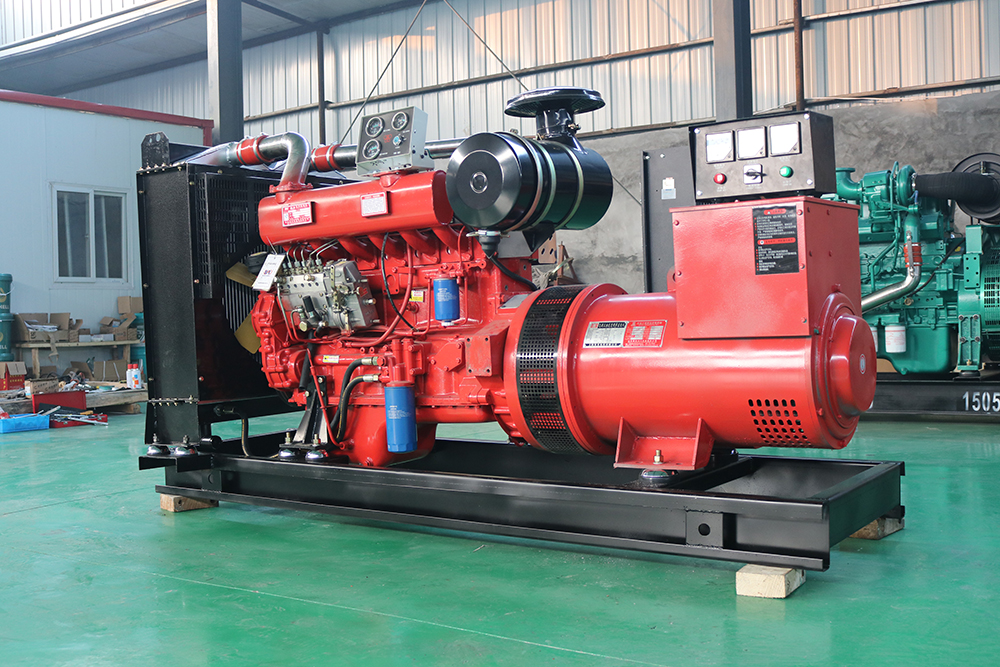Introduction
In the world of engineering and manufacturing, endurance testing plays a crucial role in ensuring the reliability and performance of various products. One key component often subjected to endurance testing is the diesel generator. Diesel generators are commonly used in a wide range of applications, from backup power for critical facilities to primary power sources in remote locations. Endurance testing of diesel generators is essential to verify their durability, efficiency, and overall performance under prolonged and strenuous operating conditions. This article explores the importance of endurance testing for diesel generators, the methods involved, and the benefits it brings to the reliability and performance of these critical power sources.
Importance of Endurance Testing for Diesel Generators
Diesel generators are widely relied upon for providing backup power during emergencies, as well as for continuous power supply in off-grid locations. These generators must be able to operate reliably and efficiently for extended periods to ensure the uninterrupted flow of electricity. Endurance testing is crucial for assessing the ability of diesel generators to withstand continuous operation under varying loads and environmental conditions.
Endurance testing helps identify potential weaknesses or vulnerabilities in the design, components, or manufacturing of diesel generators. By subjecting the generators to prolonged operation, engineers can simulate real-world conditions and evaluate how well the units perform over time. 500KW Diesel Generator For Sale helps validate the manufacturer's claims regarding the durability and reliability of the generators.
Methods of Endurance Testing for Diesel Generators

Endurance testing for diesel generators typically involves running the units continuously for an extended period while monitoring various parameters such as temperature, vibration, fuel consumption, and power output. There are several methods used for conducting endurance testing, each with its own advantages and limitations. Some common methods include:
1. Continuous Operation Testing: In this method, the diesel generator is run continuously at full load or varying load levels for a specified duration. This test helps evaluate the generator's ability to maintain stable operation over an extended period without experiencing overheating or other issues.
2. Load Cycling Testing: Load cycling testing involves subjecting the generator to repeated cycles of load changes, simulating the typical operating conditions it may encounter in real-world applications. This test helps assess the generator's response to varying loads and its ability to adjust power output accordingly.
3. Environmental Testing: Environmental testing involves exposing the diesel generator to extreme temperatures, humidity levels, vibrations, and other environmental factors to evaluate its performance under harsh conditions. This test helps identify any weaknesses in the generator's design or components that may affect its reliability.
4. Fuel Consumption Testing: Fuel consumption testing evaluates the efficiency of the diesel generator by measuring the amount of fuel consumed per unit of power output. This test helps assess the generator's fuel efficiency and overall cost-effectiveness over extended operation periods.
Benefits of Endurance Testing for Diesel Generators
Endurance testing offers several key benefits for diesel generators, including:
1. Reliability Verification: By subjecting diesel generators to endurance testing, manufacturers can verify the reliability of their products under prolonged operation. This helps build trust among customers and ensures that the generators can perform as expected when needed.
2. Performance Optimization: Endurance testing allows engineers to identify areas for performance improvement in diesel generators. By analyzing the data collected during testing, manufacturers can make design enhancements to enhance efficiency, reduce emissions, and optimize power output.
3. Quality Assurance: Endurance testing serves as a quality assurance measure to ensure that diesel generators meet industry standards and regulatory requirements. Through rigorous testing, manufacturers can identify and address any potential issues before the generators are deployed in the field.
4. Cost Savings: By identifying weaknesses or inefficiencies early on through endurance testing, manufacturers can avoid costly repairs or replacements down the line. Investing in thorough testing upfront can help save time and money in the long run by preventing unexpected failures or downtime.
Conclusion
Endurance testing is a critical aspect of ensuring the reliability and performance of diesel generators. By subjecting these power sources to prolonged operation under varying conditions, manufacturers can verify their durability, efficiency, and overall quality. Endurance testing helps identify potential weaknesses, optimize performance, and ensure that diesel generators meet the demands of diverse applications. Through rigorous testing and analysis, manufacturers can enhance the reliability of diesel generators and provide customers with power sources they can trust in times of need.
